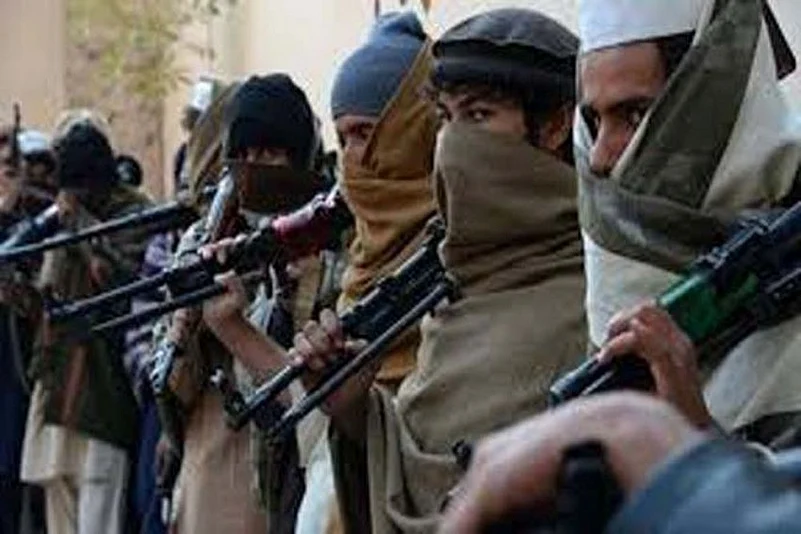The Taliban seized three more provincial capitals in Afghanistan and a local army headquarters in a blitz across the country’s northeast, officials said Wednesday, with the insurgents now controlling some two-thirds of the nation as the U.S. and NATO finalize their withdrawal after its decades-long war there.
The fall of the capitals of Badakhshan and Baghlan provinces to the northeast and Farah province to the west put increasing pressure on the country’s central government to stem the tide of the advance, even as its lost a major base in Kunduz. Afghan President Ashraf Ghani rushed to Balkh province, already surrounded by Taliban-held territory, to seek help pushing back the insurgents from warlords linked to allegations of atrocities and corruption.
While Kabul itself has not been directly threatened in the advance, its stunning speed raises questions of how long the Afghan government can maintain control of its countryside. The multiple fronts of the battle have stretched the government’s special operations forces — while regular troops have often fled the battlefield — and the violence has pushed thousands of civilians to seek safety in the capital. The U.S. military, which plans to complete its withdrawal by the end of the month, has conducted some airstrikes but largely has avoided involving itself in the ground campaign.
The Afghan government and military did not respond to repeated requests for comment about the losses.
Humayoon Shahidzada, a lawmaker from the western province of Farah, confirmed Wednesday to The Associated Press his province’s capital of the same name fell. Neighboring Nimroz province was overrun in recent days after a weeklong campaign by the Taliban.
In Farah, Taliban fighters dragged the shoeless, bloody corpse of one Afghan security force member through the street, shouting: “God is great!” Taliban fighters carrying M-16 rifles and driving Humvees and Ford pickup trucks donated by the Americans rolled through the streets of the capital.
“The situation is under control in the city, our mujahedeen are patrolling in the city,” one Taliban fighter who did not give his name said, referring to his fellow insurgents as “holy warriors.”
The crackle of automatic weapon fire continued throughout the day in Farah.
Hujatullah Kheradmand, a lawmaker from Badakhshan, said the Taliban had seized his province’s capital, Faizabad. An Afghan official, who spoke on condition of anonymity to speak about an unacknowledged loss, said Baghlan’s capital, Poli-Khumri, also fell.
The insurgents earlier captured six other provincial capitals in the country in less than a week, including Kunduz in Kunduz province — a significant gain and one of the country’s largest cities.
On Wednesday, the headquarters of the Afghan National Army’s 217th Corps at Kunduz airport fell to the Taliban, according to Ghulam Rabani Rabani, a provincial council member in Kunduz, and lawmaker Shah Khan Sherzad. The insurgents posted a video online, they said, showed surrendering troops. The corps is one of seven across the army and its loss represents a major setback. It wasn’t immediately clear what equipment was left behind for the insurgents.
Some civilians who have fled Taliban advances have said that the insurgents imposed repressive restrictions on women and burned down schools. There have also been reports of revenge killings in areas where the Taliban have gained control.
Speaking to journalists Tuesday, a senior EU official said the insurgents held some 230 districts of the over 400 in Afghanistan. The official described another 65 in government control while the rest were contested. The official spoke on condition of anonymity to discuss the internal figures.
Most of northeast Afghanistan has fallen to the Taliban, except for Balkh province. There, warlords Abdul Rashid Dostum, Atta Mohammad Noor, and Mohammad Mohaqiq planned to mobilize forces in support of the Afghan government to push back the Taliban. Dostum in particular has a troubled past, facing investigations after the 2001 U.S.-led invasion for killing hundreds of Taliban fighters last year by letting them suffocate in sealed shipping containers.
After a 20-year Western military mission and billions of dollars spent training and shoring up Afghan forces, many are at odds to explain why the regular forces have collapsed, fleeing the battle sometimes by the hundreds. The fighting instead has fallen largely to small groups of elite forces and the Afghan air force.
The success of the Taliban blitz has added urgency to the need to restart the long-stalled talks in Qatar that could end the fighting and move Afghanistan toward an inclusive interim administration. The insurgents have so far refused to return to the negotiating table.
U.S. peace envoy Zalmay Khalilzad brought a warning to the Taliban on Tuesday that any government that comes to power through force in Afghanistan won’t be recognized internationally.
Tens of thousands of people have fled their homes in the country’s north to escape battles that have overwhelmed their towns and villages. Families have flowed into the capital, Kabul, living in parks and streets with little food or water.

























